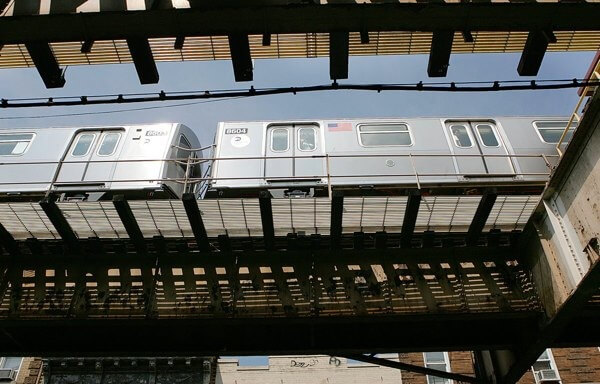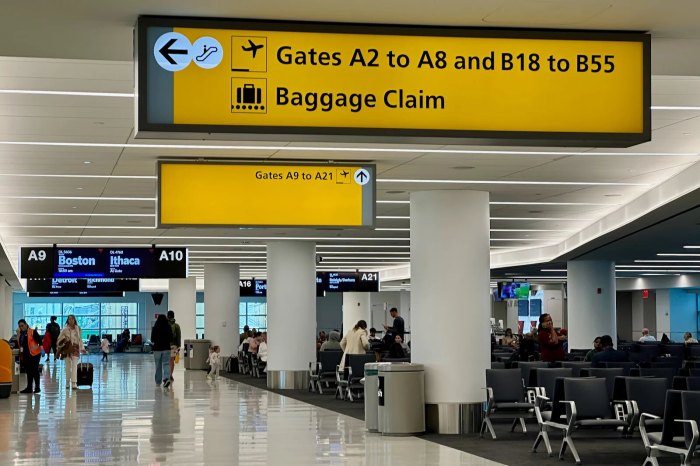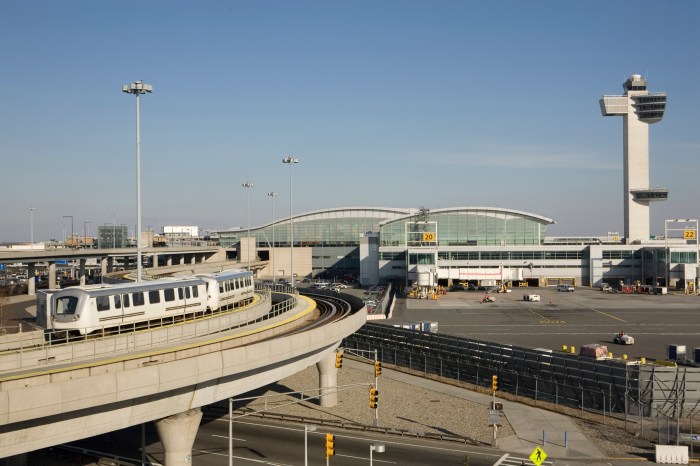By Mark Hallum
New data from the Community Service Society shows low-income New Yorkers from the outer boroughs would benefit most from the Gov. Andrew Cuomo’s Move NY Fair Plan, also known as congestion pricing, with only 2 percent of the city’s working poor expected to pay a bridge or tunnel fee in order to get to work.
A report from the city’s Independent Budget Office shows Queens public transit commuters could possibly benefit most from the plan, with the sharpest increases in delays occurring on subway lines serving the borough with the most paltry options for transportation.
According to the IBO report, the J train came in with the highest level of delays with a 72 percent increase in the time passengers are waiting on the platform. The No. 7 was the second highest in Queens with a 61 percent increase in wait times and the E train came in with 49 percent spike.
Riders Alliance Campaign Manager Rebecca Bailin said many of the issues on these lines stem from the sheer age of the infrastructure and poor funding on the part of the MTA, which could raise up to $1 billion a year in dedicated funding if congestion pricing is implemented.
The Riders Alliance, an advocacy group for better public transit, has not announced partiality to either Mayor Bill de Blasio’s millionaire tax proposal, known as “Fair Fix” or “Fair Fares,” or Cuomo’s congestion pricing plan, but favors the most immediate response to the MTA’s funding crisis.
Fair Fares offers reduced rates for low-income riders.
“The [CSS] data show what beleaguered transit riders already know: that congestion pricing is progressive policy, especially when paired with a measure like Fair Fares’ that would help low-income New Yorkers gain access to public transit,” Raskin said. “A millionaire’s tax is a fair way to fund public transit, but so is congestion pricing, and Mayor de Blasio should have a close look at the data before opposing an idea that would help millions of his constituents.”
About 27 City Council members came out in of favor the Fair Fix program last Friday, just two days after the CSS report was released showing it would cause minor detriment to the city’s poorest motorists. Councilwoman Julissa Ferreras-Copeland (D-East Elmhurst) urged the state to approve the millionaire tax.
“Increasing taxes to wealthy New Yorkers by less than 1 percent, in order to help fix the subways and fund half-price MetroCards for low-income residents makes sense. This very small contribution will have a great impact on our subway system. We have done our part to help the MTA by providing the agency with $2.5 billion for capital projects, in addition to the hundreds of millions of dollars New York City residents already contribute to the system through their state taxes and payment of fares and tolls,” Ferreras-Copeland said. “It is time for the state to do its part by supporting Mayor de Blasio’s proposal.”
Other Council members from Queens who supported the mayor’s plan included Costa Constantinides (D-Astoria), Jimmy Van Bramer (D-Sunnyside), and Daniel Dromm (D-Jackson Heights).
But other activists still lean toward Cuomo’s congestion pricing proposal, such as Move NY’s campaign director Alex Matthiessen.
“CSS’s data analysis confirms that the city’s working poor are clear beneficiaries under the Move NY Fair Plan – a highly progressive proposal that will slash traffic and raise over $1 billion a year to upgrade and expand our mass transit system,” Matthiessen said. “If we are serious about improving outcomes for the lowest income New Yorkers, we need to invest in mass transit and make it easier and more affordable for working people to get to their jobs, look for work or access job training and education programs.”
Congestion pricing was a controversial proposal when resurrected by Cuomo in August, after Mayor Michael Bloomberg fielded the idea during his time in office. Bloomberg’s proposal was crushed at the state level following wide criticism, but Cuomo referred to congestion pricing as “an idea whose time has come.”
The governor announced a state of emergency in late June regarding the subways, fraught with meltdowns and delays, to expedite infrastructure overhauls and poured an extra $1 billion into the agency’s capital funds.
Reach reporter Mark Hallum by e-mail at mhall




































